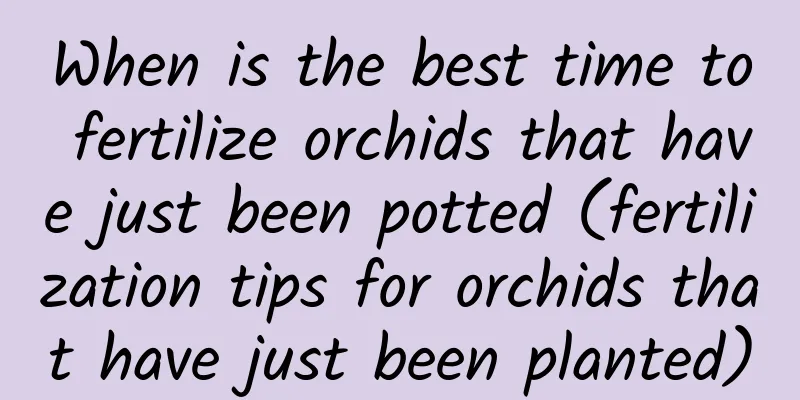What should you pay attention to when growing gardenias?

|
Gardenia is a famous traditional flower in China. With its elegant flowers and charming fragrance, it has become a favorite of many gardening enthusiasts. So what should we pay attention to when growing gardenias? Let’s learn more about it below. 1. Soil Gardenia likes acidic soil. When preparing the soil, in addition to ensuring drainage and fertility, you can also add some acidic substances to adjust the pH value of the soil. Common acidic substances include iron sulfate, aluminum sulfate, etc., which control the pH value between 5.5-6.5. 2. Temperature Gardenia prefers a warm environment, and the most suitable growth temperature is 20-28℃. In summer, you should avoid direct high temperatures, and in winter, you need to take measures to keep warm. 3. Lighting Gardenia likes light and can tolerate semi-shade environment. It needs a certain amount of light on a daily basis to ensure its healthy growth, but it is not suitable for strong sunlight exposure. 4. Moisture Keeping the soil moist is key to healthy gardenia growth, but at the same time, avoid standing water. Watering should follow the principle of "water when dry and water when wet", that is, water sufficiently when the soil surface is dry, but avoid soaking the roots in water to prevent root rot. 5. Fertilization Gardenia likes fertilizer . It is necessary to apply fertilizer in time during the growing season, apply thin fertilizer frequently, and apply phosphorus fertilizer before flowering to help it bloom. When applying fertilizer, usually spread the fertilizer evenly on the soil around the gardenia and then mix it gently with a tool . 6. Pruning Gardenias grow quickly and require regular pruning to maintain their beautiful shape. After the flowering period, cutting off the remaining flowers in time is beneficial to the growth of the plant. 7. Disease prevention Gardenia is very easy to get sick in a high temperature, high humidity and poorly ventilated environment. The leaves infected with bacteria will become moldy and black spots will appear. You can use sterilized scissors to cut off the yellow leaves with black spots, place them in a place with scattered light for 5-8 days to slow down the growth, and then you can maintain them normally later. In general, although gardenia is not difficult to grow, it still requires patience and care. In particular, the above precautions must be taken carefully to provide a suitable growth environment for gardenias, so as to cultivate healthy and beautiful gardenias.
|
<<: Green treasure breeding skills and precautions
>>: When is the best time to plant Houttuynia cordata?
Recommend
Can leeks be transplanted in November? Leek root transplanting planting methods and precautions
Leek is one of the most common vegetables in our ...
How to prune crabapple
1. How to prune 1. Early spring pruning: Early sp...
Can gold diamonds be exposed to the sun? Are they afraid of the sun?
1. Whether you can get sun exposure It can bask i...
If you use seasonings to grow flowers, it will only take a few minutes for them to take root and burst the pot!
garlic Garlic is a common condiment in daily life...
How to prune pink palm
When to prune the pink palm Generally, the pink a...
Can expired flour be used as fertilizer? Steps to ferment expired flour into fertilizer
Although expired flour can be used as fertilizer,...
How to prune Chinese toon trees
When is the right time to prune the Chinese toon ...
Does the lucky tree like the sun or the shade? Plants like sunlight (maintain in a sunny place)
Does the lucky tree prefer shade or sun? The luck...
When to repot the fiddle-leaf fig
1. Time Repotting does not need to be done every ...
Cultivation methods and precautions of cherry crystal
Breeding method: Water: It is relatively drought-...
When does strawberry planting start every year?
Strawberries are usually heart-shaped or cone-sha...
The efficacy and function of black beans
1. Enhance Immunity The plant protein it contains...
What should I pay attention to when raising miniature coconut palms?
1. Suitable temperature It likes warmth, and the ...
Sphagnum moss pests and control methods
What to do if powdery mildew appears on Sphagnum ...
What kind of variety is lettuce? How often should I water the outdoor lettuce?
1. What is the variant Lettuce is a variety of le...









